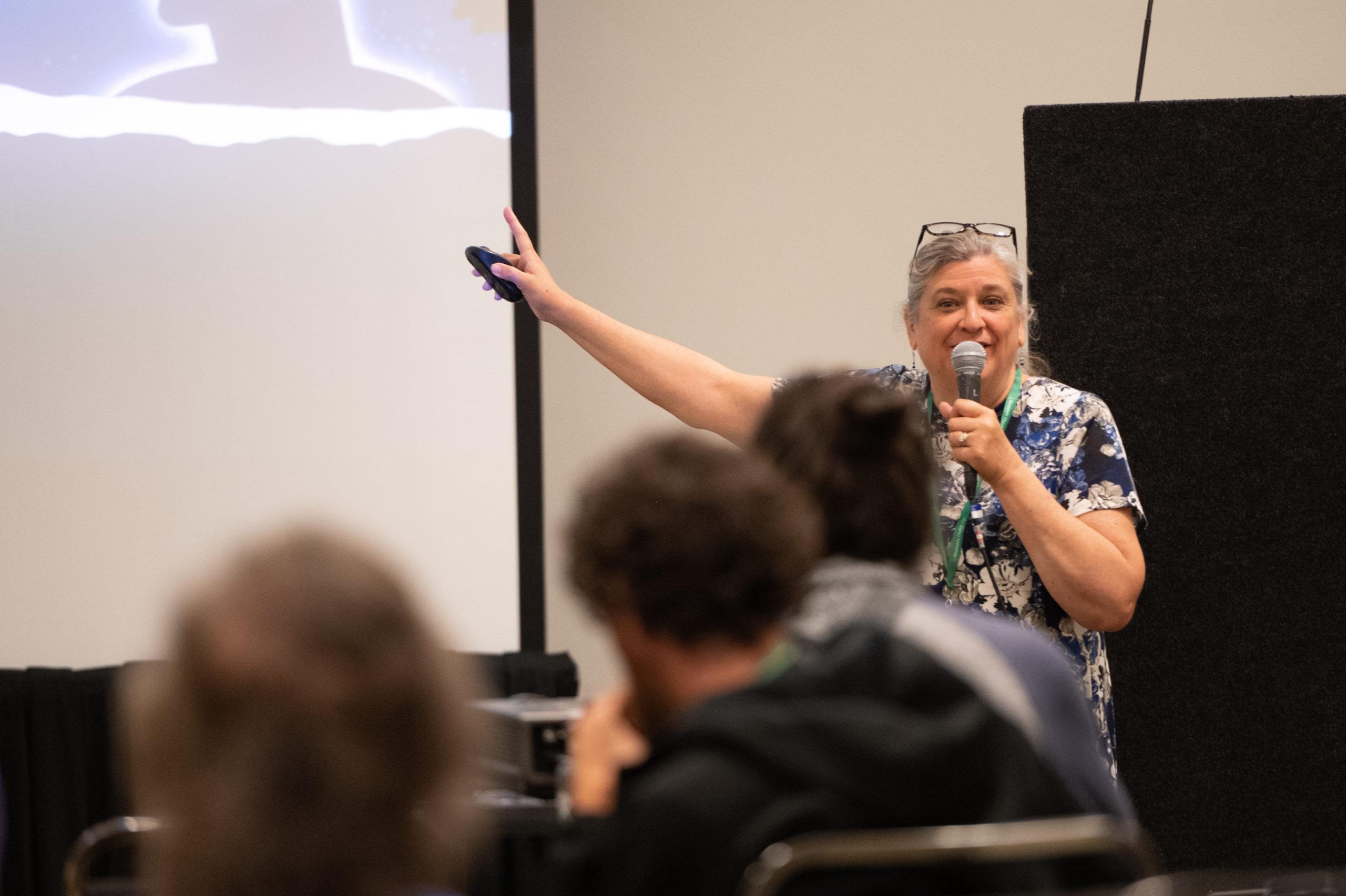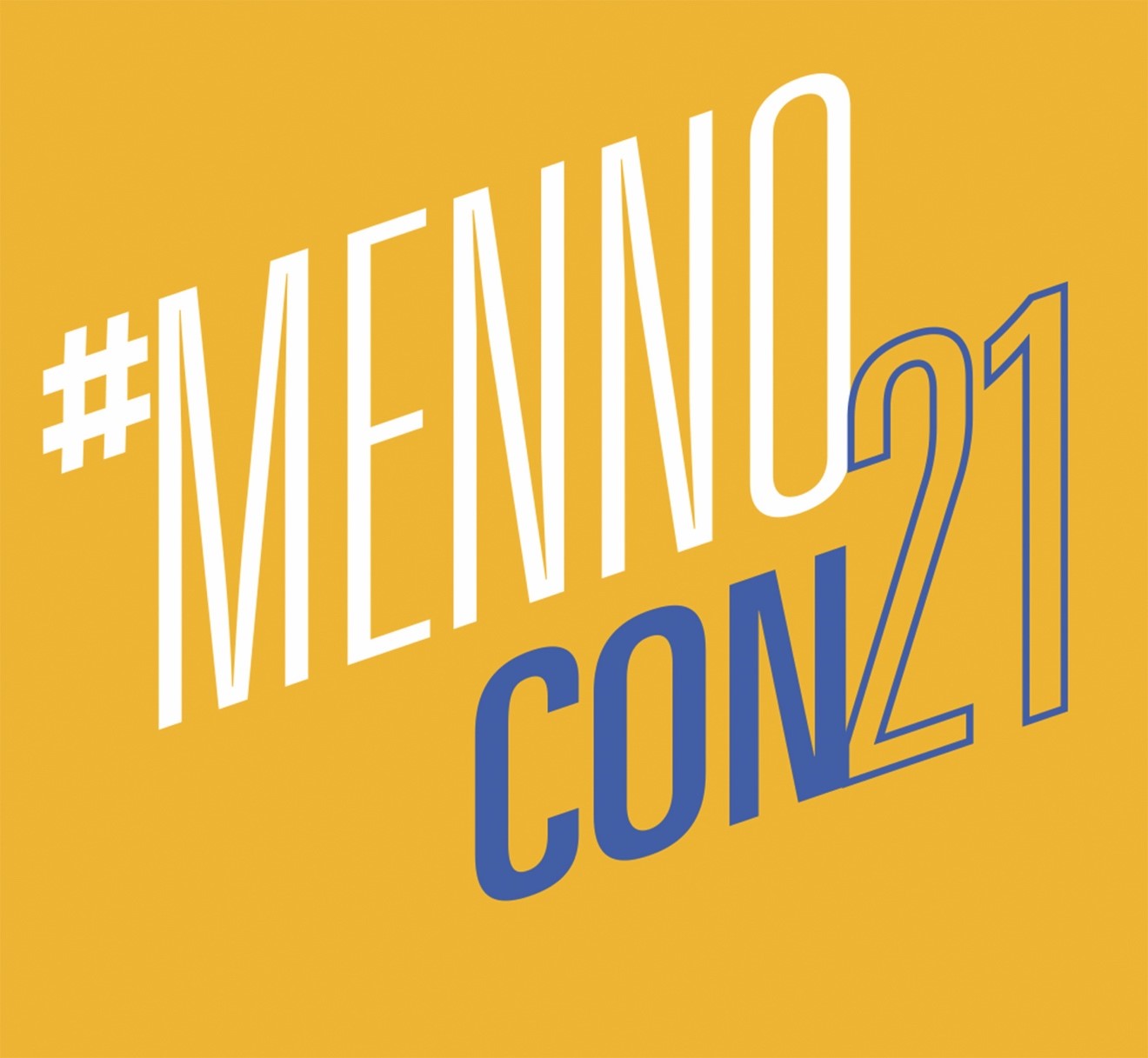By Jessica Griggs for MC USA
 CINCINNATI, Ohio (Mennonite Church USA) — Jeanne Davies, executive director of Anabaptist Disability Network, presented a seminar, titled “Worship for All,” Wednesday, July 7 at this year’s Mennonite Church USA biennial conference, MennoCon21, in Cincinnati, Ohio. Davies’ presentation explored a large variety of methods that congregations can implement to make their services more accessible to people with intellectual disabilities and autism.
CINCINNATI, Ohio (Mennonite Church USA) — Jeanne Davies, executive director of Anabaptist Disability Network, presented a seminar, titled “Worship for All,” Wednesday, July 7 at this year’s Mennonite Church USA biennial conference, MennoCon21, in Cincinnati, Ohio. Davies’ presentation explored a large variety of methods that congregations can implement to make their services more accessible to people with intellectual disabilities and autism.
When we talk about accessible worship, we generally think about removing physical barriers, but we also need to consider that we rely heavily on materials that require reading and a lot of intellectual ability, said Davies. “You can plan worship with everybody in mind from the beginning. It’s a radical idea, actually, rethinking completely the way that we do worship,” she said.
Davies’ suggestions for accessible worship are rooted in Anabaptist ideals, such as simplicity, mutual aid and service. She said that incorporating these elements into church services is beneficial to everyone and doesn’t reduce the importance of critical thinking. “We’re not throwing scholarship out the window. We’re employing all of that knowledge that we gained in our scholarship, taking a deep breath and simplifying it. Infinite complexity and infinite simplicity are two sides of the same coin,” said Davies.
Additionally, making worship accessible doesn’t necessarily require the congregation to make large changes. Davies said that a good and simple first step for congregations could be to include more images in the worship slides, or even setting out a box of sensory fidget items for people to use as they desire.

Other examples for creating a more accessible service include:
- Incorporating symbols, such as prayer hands or musical notes, in the worship bulletin so that those who have difficulty reading can still follow the order of the service.
- Providing a communal art piece for people to participate in during the service.
- Using drama to act out stories during the sermon.
- Handing out tangible items for reflection, such as prayer cords.
- Using traditional embodied practices, such as anointing and communion.
- Utilizing the gifts of all congregants, including those with disabilities, in leading worship
Davies indicated that, in her experience, these accessibility measures have been beneficial to neurotypical congregants, as well as those with intellectual disabilities and autism.
Another helpful method that encourages accessibility is what Davies calls “building social ramps.” This practice allows congregations to normalize behaviors that are usually considered abnormal. A simple example of building a social ramp is allowing people to move around during a service. Or, if someone disrupts a service by singing or speaking, the leader and congregation could pause and make space to honor that contribution to the worship service.
In her seminar, Davies conveyed that being accessible means being proactive and being flexible. She indicated that no single church service needs to include all the examples she provided, but including a few in each service, and including those with intellectual disabilities in leadership activities and decisions, makes a world of a difference.
Davies will present another MennoCon21 seminar, “Disabilities and Mutual Care,” Friday, July 9 at 9:00 a.m.
Anabaptist Disabilities Network (ADN) connects and supports people who have disabilities, families, and faith communities to create a culture of belonging for everybody. The vision of ADN is that faith communities are transformed when individuals with disabilities and their God-given gifts and experiences enjoy full inclusion in the Body of Christ. ADN relates to multiple Anabaptist denominations, including MC USA and the Church of the Brethren. The ADN office is in Elkhart, Indiana. anabaptistdisabilitiesnetwork.org
Mennonite Church USA is the largest Mennonite denomination in the United States with 16 conferences, approximately 530 congregations and 62,000 members. An Anabaptist Christian denomination, MC USA is part of Mennonite World Conference, a global faith family that includes churches in 58 countries. It has offices in Elkhart, Indiana, and Newton, Kansas. mennoniteUSA.org
Additional Resources
“Inclusion Handbook: Everybody Belongs, Everybody Serves” by Terry A DeYoung and Mark Stephenson (available for purchase through ADN)
“Accessible Gospel, Inclusive Worship” by Barbara J. Newman
Webinar: “Creative Strategies for Inclusive Digital Worship” by Bethany McKinney Fox on Stone Belt ARC website

